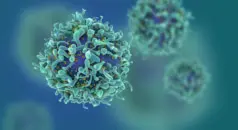
Dr David Khayat, a top oncologist, has spoken out about tobacco use, cancer and the fact that the problem is not nicotine use. In fact, he fully supports the use of electronic cigarettes and has urged fellow specialists and legislators to join him in promoting ecigs to smokers.
Appearing online to a Philippines Medical Association conference, Dr David Khayat told fellow medical professionals that they should be encouraging smokers to switch from tobacco to reduced harm products likes vaping.
Dr Khayat knows what he is talking about – he is a leading French cancer specialist, Head of the Department of Medical Oncology at the Pitié-Salpêtrière Hospital, and adjunct Professor at the MD Anderson Cancer Centre Houston, Texas.
David Khayat has been quoted frequently by the British media whenever they do features about cancer. Maybe they will soon cover what he said regarding the use of e-cigarettes when speaking about smoking, cancer and tobacco harm reduction to the Filipino oncologists.
He told them: “If you want to reduce exposure to carcinogens, you must identify the nature, production and exposure source of carcinogens.”
The crux of his argument is not something that receives anywhere enough coverage; Dr Khayat says the evidence shows that nicotine use does not cause cancer.
He continued: “Smokers commonly misperceive that nicotine is a major carcinogen,” but, quoting the findings of Cancer Research UK, he continued to say that “nicotine does not cause cancer, and people have used nicotine replacement therapy safely for many years. NRT is safe enough to be prescribed by doctors.”
Talking about how well alternative nicotine products work to help tobacco users quit smoking, David Khayat said: “All of these alternatives such as snus, electronic cigarettes (vapes) and heated tobacco products (HTPs) are showing very significant efficacy in helping people switch from real cigarettes that are very bad to health.”
Not only do they work well as quit tools, Dr Khayat informed the collected audience of specialists that e-cigs also drastically reduce exposure to carcinogens and toxicants compared to tobacco products.
He noted that traditional approaches like encouraging smokers to use patches or gum have been failing smokers – even when things get serious. Not even receiving a cancer diagnosis is enough to convince 64% of smokers to stop.
Smokers know that what they are doing is bad for them, he said, and four fifths will never quit. He said that doctors must now consider alternative solutions. Ones such as vaping that has been shown in research to have “very significant efficacy” in helping people give up tobacco use for good.
Traditional approaches have failed, implementing high taxes has failed, and banning tobacco products has failed, he continued.
Khayat added that the greater number of carcinogens nicotine users are exposed to, the higher the risk of cancer.
He pointed to the huge success the UK had in adopting a harm reduction approach to combatting AIDS – something we have rolled over into our approach to tobacco-related harm.
“Accepting that some levels of bad behaviours are inevitable, therefore, we should target to minimise the harm people suffer as a consequence. In a perfect world, the dream is to eliminate smoking and therefore all smoking-related diseases. If not possible, I think we have to take decision based on science, and not on emotion or opinion,” Dr David Khayat concluded.
